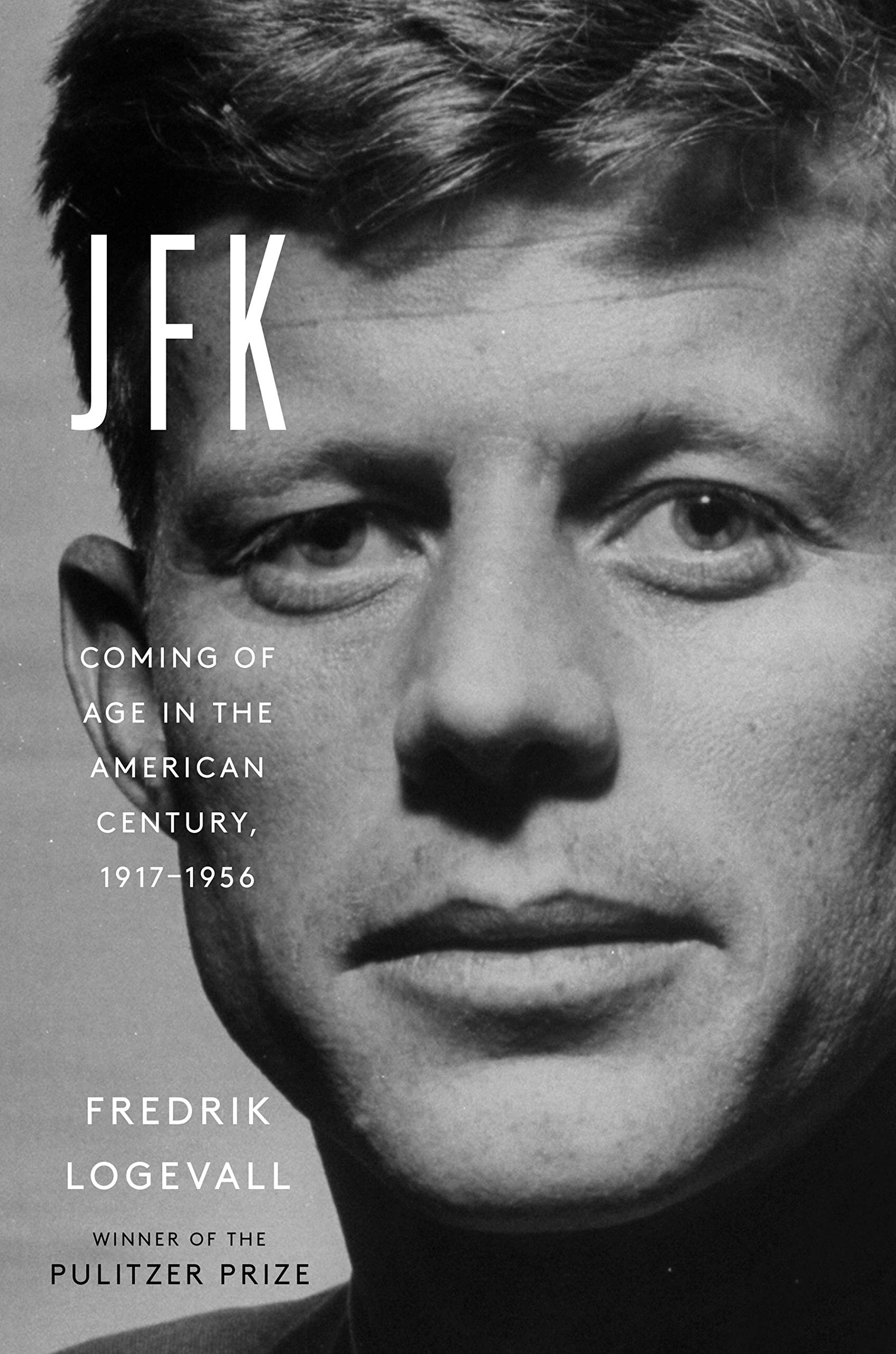Frederik Logevall
Random House

|
The survival of democracy depended on having an informed and active citizenry, committed to reasoned discourse and accepting of good-faith bargaining between the parties…Neither then nor later was Kennedy above bare-knuckle politics or partisan sparring, but he grasped already in this first race that compromise is necessary to a well-functioning democracy, and that civility in the public realm prevents dehumanization and helps us see political opponents as adversaries, not enemies. from JFK |
One who reached beyond his flaws
Do we really need another biography of John F. Kennedy? Well, apparently, we do.
Sixty years since Kennedy became the youngest elected President of the United States, the first of a two-volume biography has been released by Harvard historian Fredrik Logevall. Winner of the Pulitzer Prize in history for his book on Vietnam, Embers of War, Logevall would argue that with time comes historical perspective, beyond the initial hagiography and mythology of Camelot, beyond the later revisionist accounts of extramarital affairs, to see the man in a more balanced and complete light.
Logevall also puts Kennedy’s short life (1917-1963) in the context of America’s ascendancy as an industrial, economic and military powerhouse such as the world had never seen before.
He corrects a number of Kennedy myths: That Jack went into politics only because Joe Jr. was killed in World War II (He had developed his own keen interest in politics and international affairs in college;) that he dated a German spy (the FBI determined, even while they were dating, that Inga Arvad was not a spy;) that he never wrote Why England Slept, his Harvard thesis that became a bestseller (Logevall shows that it was Kennedy’s work, “right down to the poor spelling and errors of syntax.”) Rather than mirroring Joseph Sr.’s isolationist and pessimistic views, Jack was a student of history and government and trusted his own political judgment over that of his father’s, “who was a whiz at making money but lacked a feel for what made people tick.”
Here, too, are the familiar stories of his poor health from the time he was a child and receiving last rites on several occasions before Dallas; of his humor, good looks, charm and charisma that made every woman want “either to mother or marry him.”; of his thoughtful intelligence in a family that prized constant activity and action over reflection. Particularly interesting is Logevall’s account of how Kennedy, a lackluster student, came to develop a passion for history and politics. Even his critics could not doubt his courage: while many people used family money and influence to stay out of World War II, Kennedy used them to get into the fight.
Certainly, JFK was human with human flaws, and Logevall examines these as well—but, seriously, who among us doesn’t have flaws? (Feel free to cast the first stone.) In the end, we can only hope that our virtues, the good we’ve done, the better angels of our nature, outweigh the flaws in our character as much as did Jack Kennedy.
This review first appeared in The Columbia River Reader (July 15, 2021.) Reprinted with permission.



